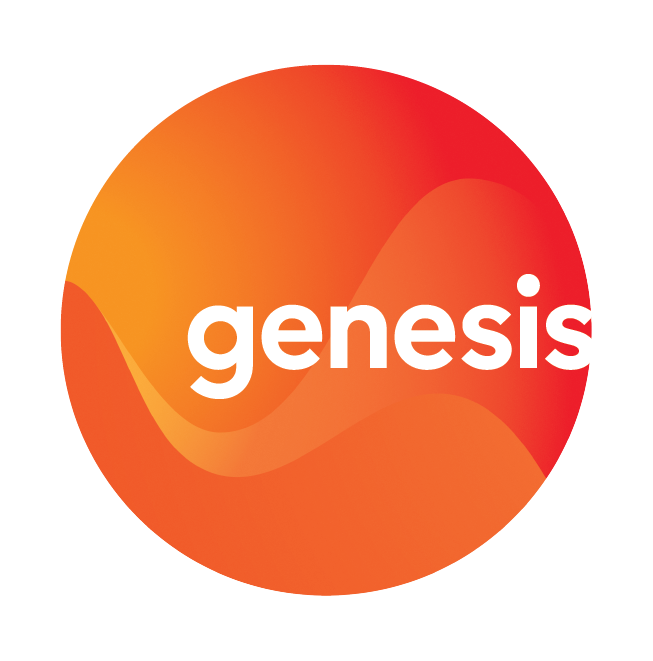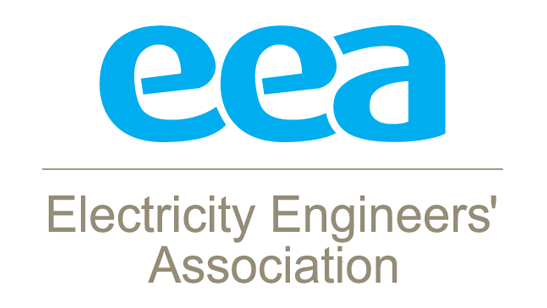Working groups have been formed to develop solutions to industry-wide health and safety issues. The working groups in progress are noted below. Once a working group has completed their task the outcomes from the group are published as guidelines.
WA Recipient Competency Frequently Asked Questions
StayLive Work Control Procedures - you may have some questions, like...
- Why do we need a new competency solution?
- Who’s designing it and how do you know it’s accurate?
- How will consistency in assessment and certification be assured across organisations?
- Who will require the new StayLive Work Authority Recipient certifications?
- Are there any prerequisites?
- What are the two parts to this new certification?
- What is Work Ready vs Work Capable?
- What does it mean to be StayLive WA Recipient Provisional (work ready)?
- How does an individual transition from StayLive WA Recipient Provisional (work ready) to WA Recipient Certified (work capable)?
- What is meant by General Supervision and who is responsible for this?
- What does the eLearning cover?
- How do we transition from the existing WA certification (WAC) to the new one?
- What are the expectations for Issuers and other field staff during the provisional period?
- Are there insights from the pilot on how much time or effort is typically required during Recipient’s “provisional” on Issuers and field staff?
- What are the expectations for Field Recipients specifically during the provisional period?
- Will the Issuers and Field Recipients receive specific guidance or structured tools to support the coaching approach?
- Will there be tools (e.g. coaching prompts, checklists, attestation forms) available to ensure consistency?
- How will expectations and guidance be tailored to suit the needs of the Issuer and Field Staff / Recipient vs the Recipient?
- Once I've done it, do I need to repeat it? Is there a recertification requirement?
- What does VoC mean?
- What if I've been carrying out this roles for years, do I still need to go through the new training / sign off?
- In my role I don’t actually need to be a WA Recipient, but I do need to understand what they do, what certification level is best for me?
- How will it be recorded?
- What happens when I go to another site? Will they have my competency record?
- When will my current WAC cease to be accepted?
- Can I expect new Permit Recipient training soon too?
- Who do I contact if I have any other questions or concerns?
- Frequently Asked Questions for initial rollout (StayLive Work Party Member & General Work Supervisor)
Why do we need a new competency solution?
StayLive member companies are working together to build competency and foster a healthy approach around how we do things in our industry - like how we apply work control procedures (WCPs).
New WCPs are part of the master plan to drive material and sustainable improvement in health, safety and wellbeing through collaboration. Existing training / competency solutions vary greatly across industry and need attention – they’re inconsistent, not fit-for-purpose and present a number of logistical challenges around classroom-based courses and contractors required to do multiple trainings.
Additionally:
- The existing WAC delivery system lacks practical performance assurance.
- The new process formalises what good sites already do, making it scalable and consistent.
Who’s designing it and how do you know it’s accurate?
Building on insights from the review we conducted a couple of years ago, the StayLive WCP working group has worked alongside learning experts. Along the way, industry champions from across our member organisations tested and helped to refine it, making sure it works in practice — not just on paper.
How will consistency in assessment and certification be assured across organisations?
Formative assessment is woven throughout the eLearning using interactive questions and scenario-based checks, and feedback loops that help the learner test and strengthen their understanding as they work through. This means it is not dependent on individual assessors.
In the first instance, monitoring will occur via current site H&S performance reviews and assurance processes.
The final development phase is for WCP Audit and Review - this will include competency assurance.
Who will require the new StayLive Work Authority Recipient certifications?
The StayLive Work Authority Recipient certifications are for all personnel required to be the Recipient of a Work Authority on a generation site.
Are there any prerequisites?
- Best practice experience: Ideally, a Recipient stepping into the role will already have some exposure to the WA system and the Recipient function by participating as part of a work party. With this background, they arrive well-prepared and, after completing the eLearning, are considered Work Ready. The provisional period then acts as a consolidation stage, allowing Recipients to reinforce and embed their foundational learning.
- Formal prerequisite: Completion of the StayLive Work Party Member certification.
What are the two parts to this new certification?
StayLive Work Authority Recipient Provisional (Work Ready): WA Recipient eLearning Module.
StayLive Work Authority Recipient Certified (Work Capable): Achieved through coaching on-the-job and an employer attestation.
Research shows that many individuals build on formal learning experiences once they’re on site and can engage with experienced staff such as local operators. This insight forms the foundation of the Work Capable / Provisional approach for StayLive WA Recipient certification.

What is Work Ready vs Work Capable?
The StayLive WCP competency pathways are aligned to the StayLive Training & Competency Guideline* and reflect the Work Ready / Work Capable format.
Work Ready - Can demonstrate theory and knowledge
Work Capable - Can demonstrate practical application of theory

What does it mean to be StayLive WA Recipient Provisional (work ready)?
WA Recipient Provisional means an employee has completed the WA Recipient eLearning module having demonstrated WA process theory and knowledge.
The Provisional period serves as a performance support phase for applying the eLearning concepts in practice.
After completing the eLearning, the individual may perform the role of WA Recipient under general supervision of the Issuer and other experienced Recipients.
Their Provisional status is clear to the Issuer as they are certified StayLive WA Recipient Provisional (work ready). This remains in effect until they have been the Recipient of enough Work Authorities (a minimum of 3) within a 24-month period to demonstrate to their employer their capability to fulfill the responsibilities as a Recipient.
How does an individual transition from StayLive WA Recipient Provisional (work ready) to WA Recipient Certified (work capable)?
Following this Provisional period, they qualify for the Work Capable certification which is awarded on receipt of their employer Attestation to achieve StayLive WA Recipient Certified (work capable).
What is meant by General Supervision and who is responsible for this?
EEA definition of General Supervision: Where the Work Party or Worker being supervised is under such control and direction to the extent necessary to ensure the work is carried out competently and while the work is being undertaken, all appropriate health and safety requirements are being implemented.
It is the employer's responsibility to ensure general supervision is provided. This works best when a member of the work party can provide it.
What does the eLearning cover?
The StayLive WA Recipient eLearning module introduces key concepts through scenario-based experiences and is the next best thing to on-the-job exposure. It covers:
- An overview of the Work Authority (WA) and the types of situations where it applies.
- Understanding the WA as a minor works management – while recognising it does not equate to low risk.
- How the WA Recipient also fulfils the role of Work Party Supervisor.
- Roles and responsibilities of the WA Recipient.
- The importance of collaboration and coordination between the WA Recipient and the Issuer.
- Best practice for completing WA forms, including using common terms, describing equipment to be worked on, outlining the work to be done and identifying precautions.
- Recipient applied safety measures (RASMs): what they are, when to apply them, and how they are used
- Isolation points and methods: how to describe them effectively and why selecting them in consultation with the Issuer is critical.
- Using electrical and mechanical drawings to confirm isolation points.
- Plant status controls, with examples of when and how to apply them.
- Issuing and accepting the WA.
- Managing work completion and close-out actions under the WA.
How do we transition from the existing WA certification (WAC) to the new one?
From December 2025, Genesis, Meridian, Nova / Todd, Manawa and Mercury will begin full transition to the new certifications and provide the means to do so:
1. All new or not-yet-competent individuals seeking to perform the WA Recipient role will be required to complete the new StayLive WA Recipient pathway. This pathway comprises:- eLearning (fundamental knowledge) – work ready
- Provisional period with supported field practice under general supervision
- Employer Attestation confirming work capable
The new StayLive WA Recipient Certified will be recognised as equivalent to WAC at all sites if they have not yet transitioned.
What are the expectations for Issuers and other field staff during the provisional period?
The Issuer is responsible for ensuring that the Recipient sufficiently understands the WA requirements to carry out the work and take on Recipient responsibilities whilst under general supervision. They already ask probing questions to gauge the Recipient’s capability and provide support as needed, so this ‘coaching’ role simply places more structure around what they are (and should be) doing.
The level of coaching and supervision required will depend on the Recipient’s prior experience and starting point. Though not always possible, best practice for a Recipient stepping into the role involves gaining exposure to the system and the Recipient function as part of a work party. In this scenario, they should present well-prepared and, having completed the eLearning, are Work Ready—already further along than under the current provision. The provisional period then serves as a catch-all stage, giving Recipients the opportunity to consolidate and reinforce their foundational learning.
Are there insights from the pilot on how much time or effort is typically required during Recipient’s “provisional” on Issuers and field staff?
Timeframes varied widely, depending on factors such as the Recipient’s preparedness (e.g., prior experience as a work party member versus a first day on a generation site) and the complexity of the job. We anticipate that in the first few instances an Issuer supports a Recipient—taking extra time to check in and reference new materials—the sign-on could take an additional 15–30 minutes. However, this upfront investment and support is expected to deliver gains in overall work completion, through the Recipient’s improved clarity and ability to function more effectively in their role.
We also heard that, even under the current informal process, Issuers instinctively take extra time when a new Recipient presents to sign onto a WA, to ensure they are clear on the process.
What are the expectations for Field Recipients specifically during the provisional period?
They are expected to provide supervision, guidance, and feedback to help inexperienced Recipients apply the role safely and confidently.
- Check in regularly and offer guidance where needed.
- Reassure support is available throughout the WA lifecycle.
- Ensure safe practices (e.g., RASMs) are followed.
- Give constructive feedback, reinforcing both strengths and improvements.
Will the Issuers and Field Recipients receive specific guidance or structured tools to support the coaching approach?
A Guide with questions and model answers is available, and we are also preparing a presentation to support implementation. Once the Issuer course is developed, the responsibilities and coaching guidance for supporting Recipients through their provisional period will be embedded within the learning itself.
Will there be tools (e.g. coaching prompts, checklists, attestation forms) available to ensure consistency?
Yes, the following:
Two Guides: One for Issuers / Field Recipients and one for Recipients / Employers: The guides aim to:
- Set the scene - outlining the context, key considerations, and responsibilities involved in providing general supervision and coaching.
- Support effective coaching - with practical prompts you can use while coaching WA Recipient Provisionals to get the most from each interaction.
- Build consistency – by defining benchmarks for what good practice looks like and promoting a shared, performance-focused approach to developing new WA Recipients.
Self-Assessment / WA Tracker: for the Recipient to reflect on their capability following the eLearning and record progress as they work through their provisional period.
Attestation: Employer / Recipient
These will all be made available through the implementation process and embedded as appropriate (e.g. Self-Assessment & Attestation in the learning journey, via the LMS).
How will expectations and guidance be tailored to suit the needs of the Issuer and Field Staff / Recipient vs the Recipient?
The Recipient follows the pathway from the LMS starting with the eLearning. The Issuers and Field Recipients: During transition via comms, FAQs on the website and the Guide. Additionally, embedded into the Issuer learning experience once developed (within the next 12 months).
Once I've done it, do I need to repeat it? Is there a recertification requirement?
Yes. Like the current WA Recipient certification, you must recertify every two years through the VoC (validation of competency) renewal process.
What does VoC mean?
Validation of competency aka VoC takes development of capability through exposure on the job into consideration. It’s a process of recertification that may not require a full refresher if the individual has been practicing the skills that make up the certification.
What if I've been carrying out this roles for years, do I still need to go through the new training / sign off?
Yes, think of it as a reset! We know that there are gaps in the existing training and the WCPs have recently been reviewed and updated, so the eLearning will either confirm what you already know or fill in any gaps. It’s been designed in a way that if you’re already really experienced, you’ll whizz through it without needing to review feedback.
In my role I don’t actually need to be a WA Recipient, but I do need to understand what they do, what certification level is best for me?
You can complete the StayLive Work Authority Recipient eLearning and finish at the Work Ready - Provisional certification level.
How will it be recorded?
Each member company will record the StayLive competencies in their internal learning management system (LMS) and those using the StayLive Competency Tool (SCT) will push the result to the industry competency tool.
What happens when I go to another site? Will they have my competency record?
If the company who hosted the course for you online is unable to register the result with the StayLive competency tool, you can ask them for proof of competency and present this to the new site, where they will transfer and update your record in their system.
When will my current WAC cease to be accepted?
- Your current WAC will remain valid for two years from the date it was issued.
- All WACs will be fully replaced by the new StayLive WA Recipient certification by 1 December 2027.
Can I expect new Permit Recipient training soon too?
We are currently developing the StayLive Permit Recipient, which we expect to deliver in the first quarter of 2026, closely followed by StayLive Work Authority Issuer and StayLive Permit Issuer.
The format for each of these will include an eLearning + practical component.
Who do I contact if I have any other questions or concerns?
Please email the StayLive WCP workcontrolproceduresgroup@meridianenergy.co.nz or reach out to your member company WCP group member:
Genesis – Steve Leppien
Mercury - Kiel Adlam
Meridian – Matt Rogers
Manawa Energy – John Hind
Nova Energy – David Feaver
Pioneer Energy – Callum Diamond


















